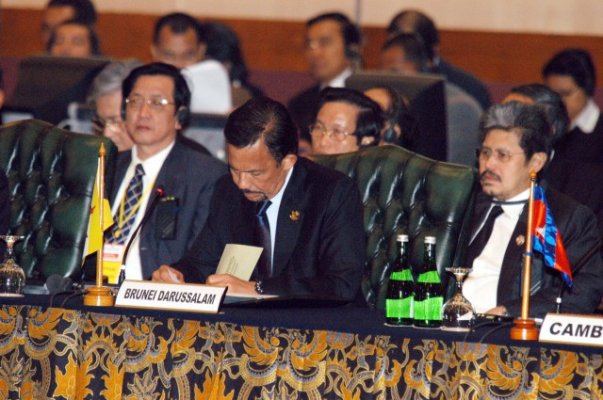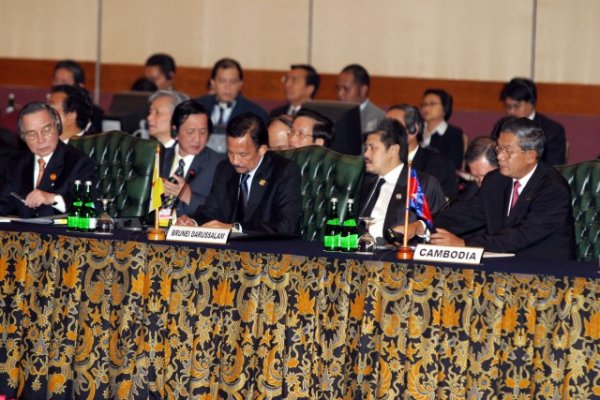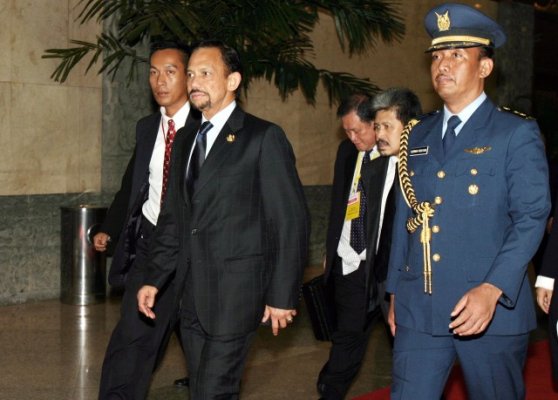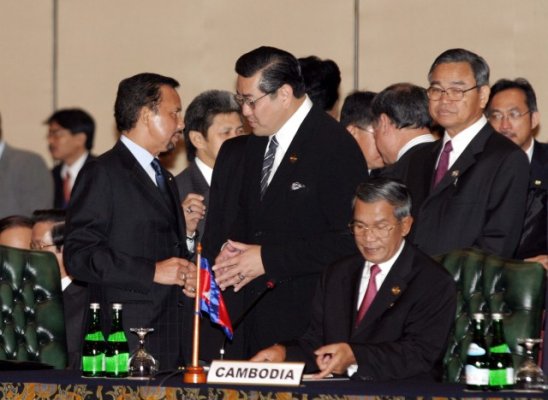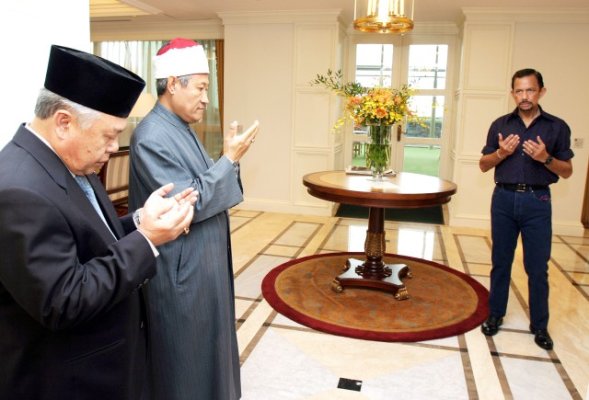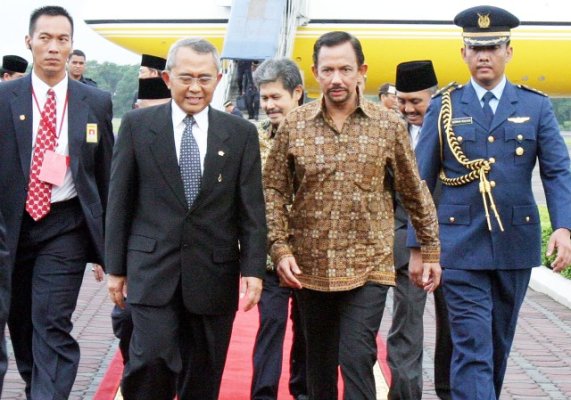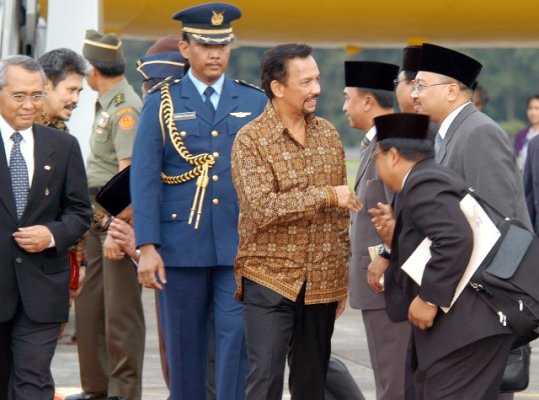galuhcandrakirana said:
Hi everybody don't you all think that despite we have seen the bad catastrophe which brought a great pain and sadness in many of human life we also can see how wonderful when (almost) the entire world is hand to hand together to help the unlucky one. High technology machines are using to help human life and not to destroy it.
That is true. So many countries have responded with unprecedented generosity.
The region that has received criticism for being too stingy, however, is the Middle East, most specifically, the Gulf States and Saudi Arabia.
These are oil-rich nations that have not only been slow to respond to the crisis but have actually called the tsunami a punishment from God. I was appalled at this reaction. They have only now started responding after criticism from abroad.
Arab response to tsunami picks up
Amman, Jordan, Jan. 6 (UPI) -- The Arab response in assisting the victims of the tsunami hit countries in South Asia has started to pick up pace after domestic and Western media criticism that rich Arab countries were being too stingy in their contributions.
http://z1.adserver.com/w/cp.x;rid=319;tid=20;ev=2;dt=3;ac=42;c=431;The oil-rich Gulf states found themselves on the defensive following Western criticism in the media that they had not rushed, as expected, to the assistance of their fellow Muslims in Indonesia, the most-populous Muslim country in the world.
Out of more than 150,000 killed in the Dec. 26 disaster, 94,000 people were killed in Indonesia alone, while Muslim minorities in Sri Lanka, India and Thailand have had their share of losses.
The oil-rich wealthy Arab governments came under sharp criticism, mainly from the West, for rushing to aid so-called Islamic terrorist groups through their charity organizations, while paying little attention to almost 2 million people left homeless from the killer waves.
Thus, Saudi Arabia on Tuesday raised its initial pledge of $10 million to $30 million, the United Arab Emirates to $20 million from $2 million, while Kuwait increased its initial $2 million to $10 million, as many began airlifts of relief supplies to the tsunami-hit areas in general, not only to the Muslims.
An independent Jordanian analyst said the contributions by the rich Arab governments, though they increased, were still too little compared with the damage the tsunami had left behind, constituting "a drop of what these people can really afford to give."
The analyst, who did not want to be identified, added, however, that some of these countries never rushed to assist their "own people in the region, such as those in Sudan or Iraq," insisting that they were now increasing their aid to South Asia only to try to "shut up" the West, especially the United States, which was taking center stage in assistance, and to avoid further criticism.
Considering the oil wealth in the Gulf, their pledge of $70 million, including a $10 million from Qatar, seems meager compared with the $2 billion promised by 40 countries, with Japan alone offering $500 million and the United States lifting its initial pledge of $35 million to $350 million.
In addition, some of the Arab governments have been coming under sharp criticism for not doing enough for a people they have been relying on to do menial jobs that Arabs refuse to take, such as housekeeping, farming and construction work.
Hundreds of thousands of men and women -- mostly from Sri Lanka, Indonesia and India -- work as cheap labor in these countries, growing the harvest, keeping house and practically raising children in most Arab homes. Many of them have had family members who either perished in the tsunami or were left homeless.
That was a point of issue raised this week by Kuwait's al-Qabas daily, which criticized the emirate's first contribution and commented that "we stepped into the modern world with them, and through them; its sons are helping us today in building our country and raising our children."
Lebanon's Daily Star urged Arab governments and the private sector to grab the opportunity of the disaster to "display to the world another Arab characteristic that is too often overlooked: generosity." It said that "long-established images, or caricatures, of white-robed sheikhs sailing their luxury yachts on seas of oil and using $100 bills to light their Havana cigars will only be reinforced in the face of collective miserliness in this hour of human need, especially if the petroleum-rich Gulf states do not dig a bit deeper into pockets that have become quite deep indeed over the last few years of high oil prices."
Meanwhile, it was not clear why Arab governments were not taking part in Jakarta's donor conference on Thursday that discussed reconstructing the economies of the tsunami-hit countries, in which major donors and organizations participated.
However, the Saudi-based Islamic Development Bank dispatched a delegation to the one-day meeting to assess the needs of the region.
The Saudi press in particular has defended its people's contributions to South Asia, reporting that private businessmen have taken the initiative to charter planeloads of humanitarian goods to the affected areas and that volunteers were signing up to travel to the region to help out. The papers insisted that most Saudis were not publicizing their efforts because it contradicted the principle of anonymous giving.
But initiatives to raise funds across the region, particularly in the Gulf states, have in fact begun to pick up momentum, including allocating airtime for telethons for the tsunami victims.
Government-owned Saudi Television went on air Thursday to raise funds, as did channels in the United Arab Emirates. The Qatar-based al-Jazeera news channel launched a fund-raising campaign, while the Dubai-based CNBC Arabiya, an economic and business satellite channel, said it will hold a telethon Monday.
CNBC Arabiya Vice President Mohammad Moumenine told United Press International the Arab media had a "responsibility and a duty, not only to create more awareness on the suffering incurred by the tsunami, but to do something to increase assistance from the Arab world."
The private-owned channel, which will provide bank account numbers in different Arab countries for callers to deposit their donations, is expected to raise a substantial amount of money from its audience of mostly Arab business investors and corporations.
"A penny raised is good at the end of the day," Moumenine said, adding that he hoped the program would "bring the viewer closer to the suffering" with footage, reports and live interviews with ambassadors from the disaster-hit countries based in the Arab world.
In the meantime, some cash-strained countries that themselves need economic assistance, such as Jordan and Lebanon, have offered their own contributions, many of them giving to the families of their employees.
Jordan this week delivered 22 tons of medicine and medical supplies donated by the country's pharmaceutical companies to Indonesia, while King Abdullah said he would dispatch a field hospital with a 24-member medical team to the country.
Jordan Telecom, the country's only fixed-line provider, offered free telephone calls all day Friday from Jordan to eight countries affected by the tsunami.
Lebanon's Red Cross director, Salim Layoun, said the organization has received thousands of telephone calls from citizens asking how they can donate money to the tsunami victims, and he appealed to the Lebanese to contribute one day's salary.
Lebanon's labor ministry has also offered amnesty to about 20,000 illegal Sri Lankan and Indian residents, allowing them to go back to their homes without deportation or paying hefty fines, costing the treasury $50 million.
http://www.washtimes.com/upi-breaking/20050106-025529-6384r.htm

